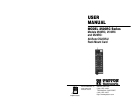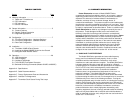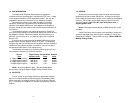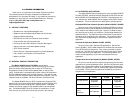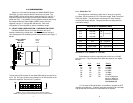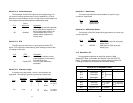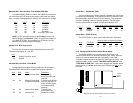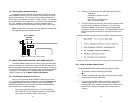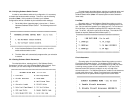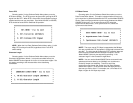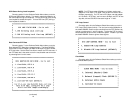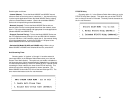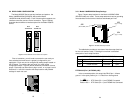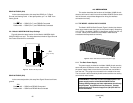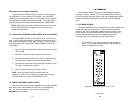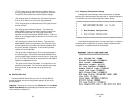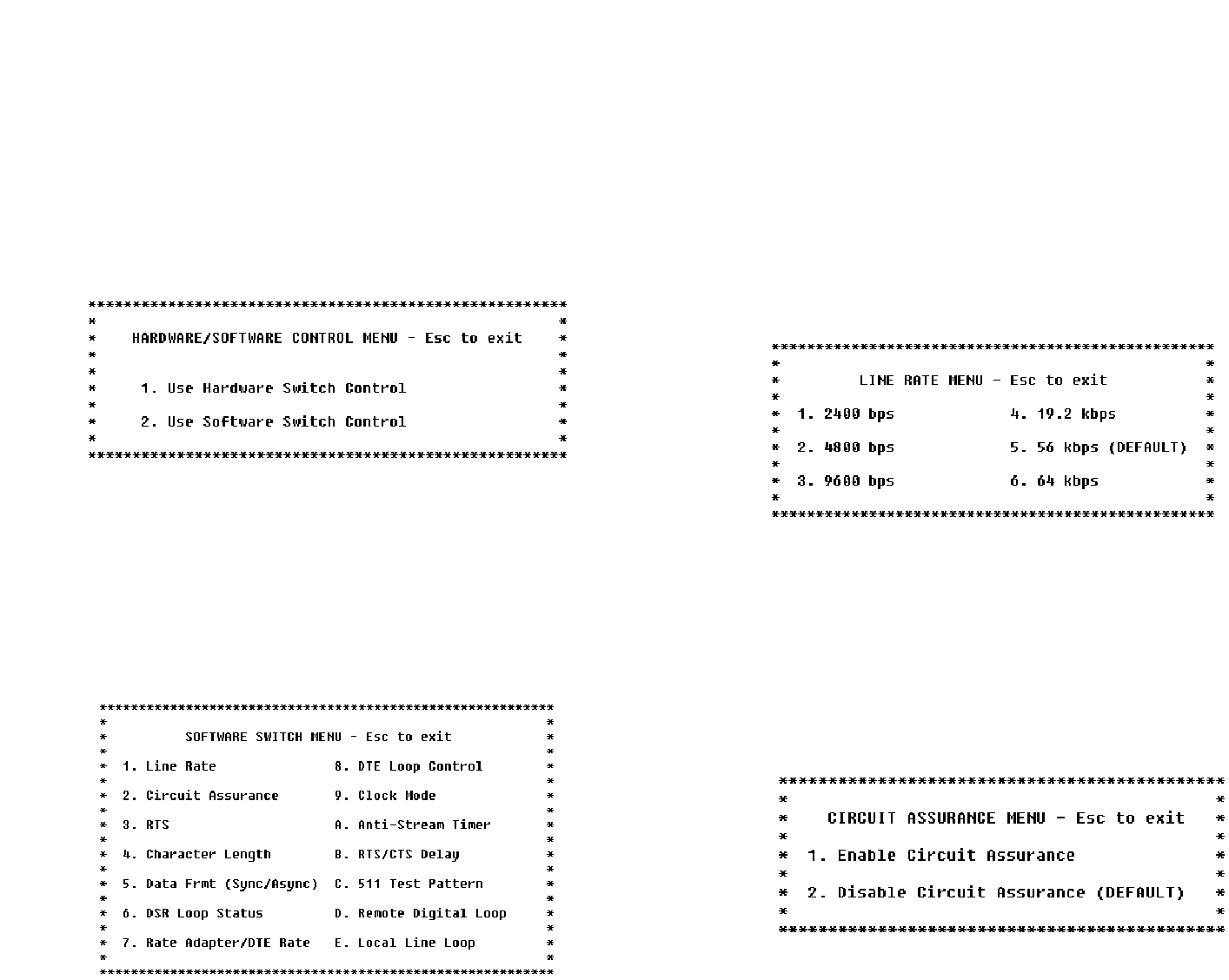
3.2.3 Verifying Software Switch Control
In order to use software switches for configuration, it is necessary
to disable the hardware switch settings. To do this, use the following
procedure (Note: If this procedure is omitted, your software
configurations will be overridden by the hardware switch settings):
1. On the Main Menu (opposite page), choose item 1, “Select
Hardware/Software Switch Control”. The following screen will
appear:
2. In the Hardware/Software Control Menu, select item 2 to
enable software switch control.
3. The Main Menu will automatically reappear after your selection
is entered.
3.2.4 Setting Software Switch Parameters
From the Main Menu, selecting item 3, “Set Software Switch
Parameters” will take you to the Software Switch Menu (below). From
this screen, you can soft configure the 2500RC parameters.
15 16
For each screen described below, selecting a numbered option and
pressing [RETURN] stores that option setting and returns you to the
Software Switch Menu (Note: All lettered options must be entered in
lower case)
Line Rate
Choosing option 1 in the Software Switch Menu takes you to the
Line Rate Menu (below). This option controls the signaling rate on the
line. Set it to match the speed of your digital service. For line rates of
56 or 64 Kbps, it is possible to operate the DTE interface at a lower
rate. To do this , set the line rate to 56 or 64 Kbps. Then set the DTE
Speed as required (Software Switch Menu option 7).
Circuit Assurance
Choosing option 2 in the Software Switch Menu takes you to the
Circuit Assurance Menu (below). On dedicated (DDS) circuits, the
transmitter and the CTS output can be configured to go ON only when
a working communication circuit is established. If you use Circuit
Assurance with DDS services, enable it on only one end of the
communication link. For Switched-56 service, enable Circuit Assurance
on both ends of the circuit. When Circuit Assurance is disabled, the
transmitter and CTS operate without regard to the receiver state.



